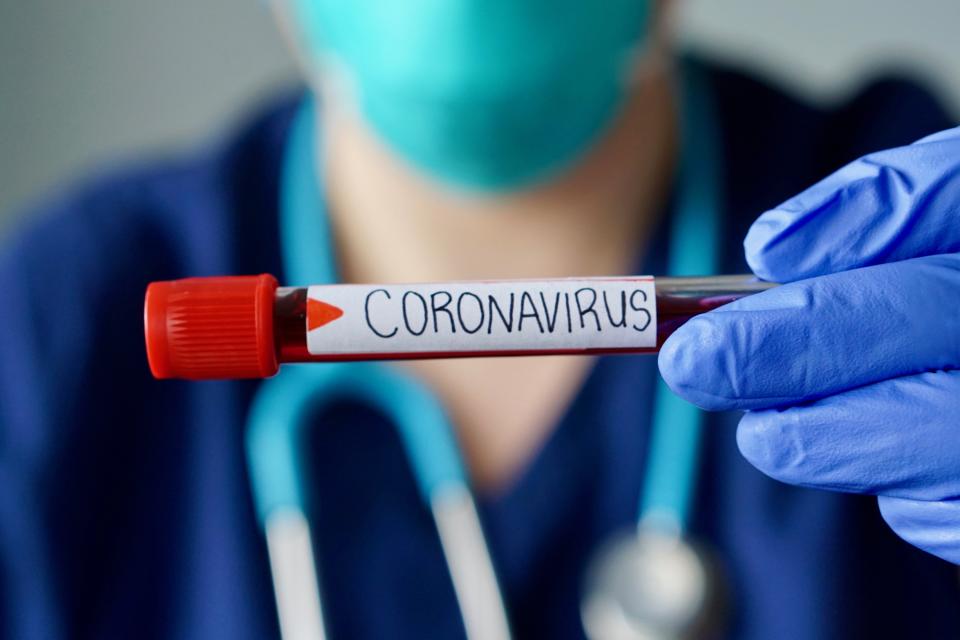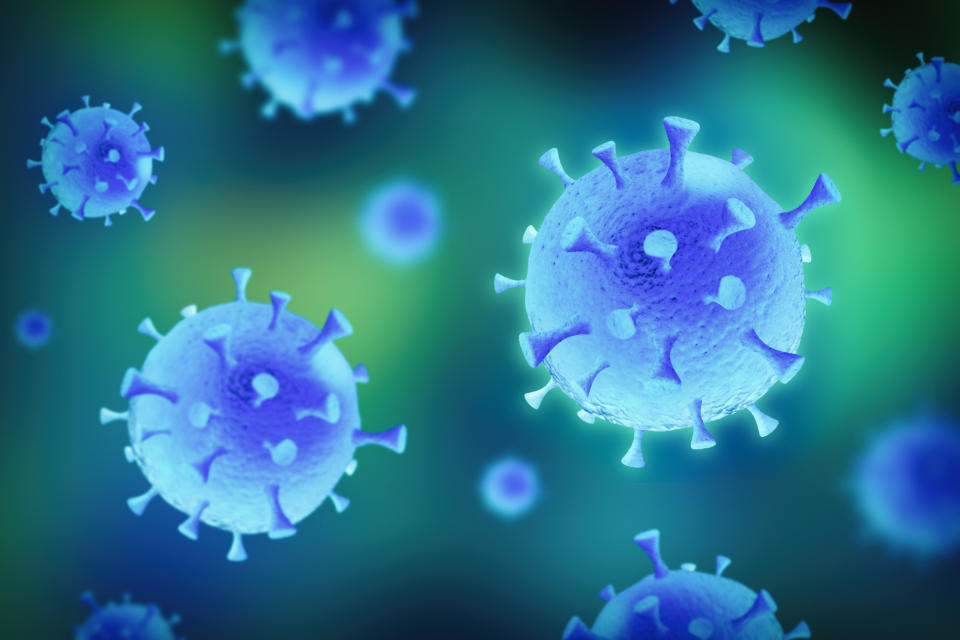How can coronavirus kill young, healthy people?
Looking for more of the best deals, latest celebrity news and hottest trends? Sign up for Yahoo Lifestyle Canada’s daily newsletter, coming soon!

As leading health experts around the world scramble to contain the coronavirus, the death toll continues to climb.
Many of those who have succumbed to COVID-19, the name for the illness associated with the virus itself, had underlying health conditions or were over age 60.
The disease also took the life of Li Wenliang, the Chinese doctor who tried to warn officials about the spread of the virus (and who was reprimanded for doing so). The whistleblowing physician from Wuhan, whose medical history isn’t known, was just 34 years old.
How the virus affect younger, seemingly healthy individuals
At this point in time, scientists are still figuring out how the virus works.
“It is early days regarding how the COVID-19 virus interacts with the body and how it produces symptoms and, occasionally, kills people,” says Vikram Misra, professor in the department of microbiology at the University of Saskatchewan in Saskatoon.

Here are a few things we do know. The novel virus belongs to a family of viruses known as coronaviruses. Named for their telltale crown-like spikes that protrude from their surface, they infect mostly bats, pigs, and small mammals, but they can travel from animals to humans, and from one human to another.
Several strains can infect humans, including two that have proven especially deadly: SARS (Severe Acute Respiratory Syndrome) and MERS, or Middle East Respiratory Syndrome.
When COVID-19 enters the body—through droplets in the air—it appears to attach to a particular receptor found in lung tissue. From there, it “hijacks” the host cell’s mechanisms to make more copies of itself. Tissue damage happens as a result of viruses taking over the cell completely, causing it to die, or when immune cells mount a defence against the viral infection, leading to cell death.
ALSO SEE: 'I am just breaking down': Selma Blair reveals she feels 'vulnerable' in candid new Instagram post
If large numbers of cells die, then the affected organ—in this case, the lung— can’t function effectively.
“Typically, coronavirus causes respiratory infections,” says Matthew S. Miller, associate professor at Michael G. DeGroote Institute for Infectious Diseases Research within McMaster University’s McMaster Immunology Research Centre. “The common coronaviruses that infect humans every year usually cause mild, uncomplicated upper respiratory infection.
“What’s different and unique about the virus that’s causing this outbreak is that it can cause acute respiratory distress,” says the head of the university’s Miller Laboratory. “That means that the patient’s lungs can accumulate fluid, for example, which is more typical of pneumonias. It’s respiratory failure or cardio-respiratory issues that lead to patients dying.”
Those with severe cases of COVID-19 are experiencing a clinical phenomenon known as a “cytokine storm”, Miller says. The term describes an overproduction of immune cells and their activating compounds (cytokines). A surge of activated immune cells enters the lungs.

This essentially means too much of a good thing: The strength of the immune response can put a healthy person at risk for complications associated with respiratory illness.
“The immune system overacts to the infection, and it’s the immune system that’s causing the damage to the lungs rather than virus itself,” Miller says. “Cytokine storm is also consistent with the disease that SARS caused and is also consistent with what we sometimes see in people who are severely ill with influenza virus infection.
“An immune system analogy might be: Instead of using a fly swatter to squash a fly you use a sledgehammer and punch a hole in the wall,” he says.
The lungs are highly vascularized, Miller explains: There’s a lot of blood flow in lungs, because they’re the site of gas exchange. Normally, you want your airways to be relatively dry so that you can breathe in air, which gets transferred to red bloods cells and carried to the rest of body.
“During infections or immune responses, the tissue becomes damaged, then fluid that’s normally contained in the blood vessels starts to leak into airways,” Miller says. “That build-up of fluid in lungs is what can cause breathing distress, because now lungs aren’t exchanging gas very efficiently.”
Cytokine storms can have other effects on the lungs, such as inflammation.
“You can have a lot of inflammation in the lungs,” Misra says. “Inflammation is always a bad thing. With the 1918 influenza virus that killed millions of people, experiments done in last 10 years show that inflammation was the killer in that case as well, because of the cytokine storm.”
“Another possible outcome is kidney failure,” he adds.

Early research into patients in Wuhan found that 17 per cent developed acute respiratory distress syndrome. Among them, 11 per cent worsened in a short period of time and died of multiple organ failure.
Misra heads the University of Saskatchewan’s Bat Zoonoses Lab, which is studying why bats, which can carry the novel coronavirus, don’t get sick from it but people do. So far, early experimental research with MERS suggests that buts have an efficient way of shutting down the inflammatory response.
“It’s very likely that overblown inflammatory response is a factor with this coronavirus, but it’s likely a lot more complex than that,” Misra says.
ALSO SEE: 'How is this happening?': Mom speaks out after suffering heart attack at 29
Unlike many other infections, specific antiviral medication for the novel coronavirus doesn’t exist, and clinical trials into other pharmaceutical treatments haven’t been done. The primary treatment at this point is supportive care for breathing, Miller notes. People who end up hospitalized with mild infections may need oxygen in the nose; others might require ventilation and assisted breathing if their lungs are severely compromised.
Symptoms of the novel coronavirus include fever, cough, shortness of breath, muscle aches, confusion, headache, and chest pain.
One of the most effective ways to avoid contracting viruses is to wash hands properly.
Let us know what you think by commenting below and tweeting @YahooStyleCA! Follow us on Twitter and Instagram and sign up for our newsletter, coming soon.



